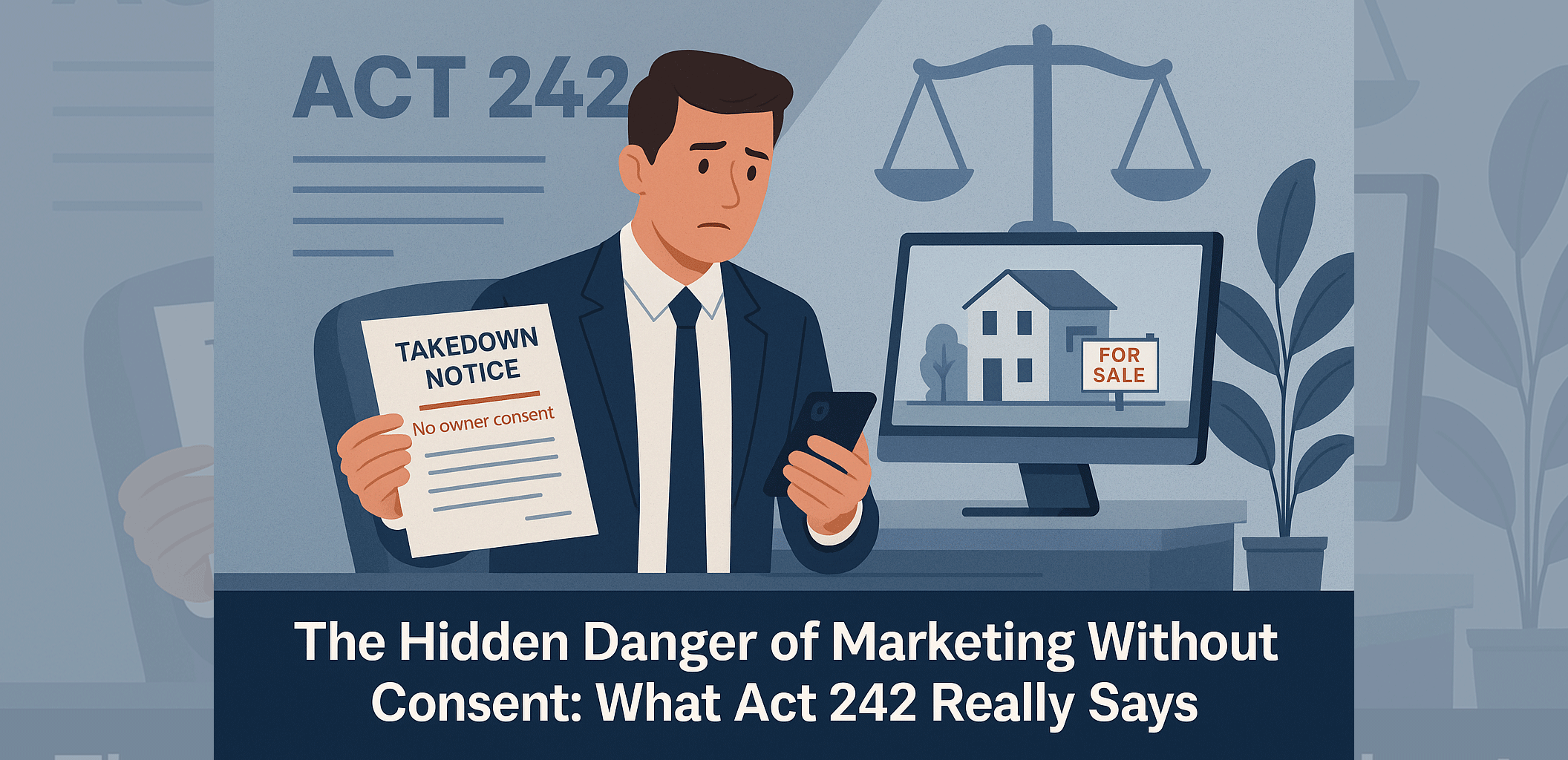The Hidden Danger of Marketing Without Consent: What Act 242 Really Says

In Malaysia’s real estate industry, co-broking is part of daily life. Agents exchange listings, share leads, and collaborate on deals — often through WhatsApp or group chats.
But there’s a crucial legal line that many agents unknowingly cross:
You can cooperate without consent.
You cannot advertise without consent.
And under Act 242, that difference can determine whether your ad is a marketing effort — or a disciplinary offence.
The Common Mistake
Here’s a scenario that plays out every day:
A lister shares a project or subsale unit in a co-broking group. You, eager to move fast, post the property on your website, boost it on social media, or print flyers with your agency logo.
You assume this is normal — everyone’s doing it. But a week later, the developer’s legal team calls.
They demand you:
- Remove all online advertisements
- Destroy every printed flyer
- Stop representing the property immediately
Why? Because you’re marketing without authority. And worse — when they ask where you got the details, your answer (“From another agent”) pulls your co-broking partner into the same trouble.
What Act 242 Actually Says
Under Section 22C of the Valuers, Appraisers, Estate Agents and Property Managers Act 1981, only an agent appointed in writing by the owner or developer has authority to:
- Advertise a property,
- Market it under their firm’s name, and
- Represent the owner in transactions.
That written appointment is typically an Exclusive Appointment Letter or Ad-Hoc Appointment — a legal document that proves you’re authorised to act.
Without it, you may assist (co-broking privately), but you may not advertise (market publicly).
The Risk of “Borrowed” Authority
Many agents assume that getting permission from a lister — who has the appointment — is enough. But authority cannot be transferred verbally or by WhatsApp.
An appointed agent cannot delegate marketing rights unless the owner explicitly allows them to do so. That means even if the lister says “Okay, you can post,” you’re still acting without the owner’s consent — a potential breach of Act 242.
The Real-World Consequences
When you advertise without consent, several things can happen:
- Takedown Demands — Developers or owners can require immediate removal of ads.
- Legal Claims — Misrepresentation or unauthorised marketing exposes you and your firm.
- Reputation Damage — Public complaints, blacklisting, or disciplinary action from BOVAEP.
- Co-Broke Breakdown — Your listing partner may lose trust, reputation, or even their appointment.
All this can stem from a single flyer or a Facebook ad done without authority.
Co-Broking Done Right
If you’re helping market a listing, always ask:
- Are you the appointed agent?
- Do you have written consent from the owner or developer?
- Am I allowed to advertise this property under my firm’s name?
If the answer to any of these is “No,” then keep your cooperation private, not public. You can still match buyers, attend viewings, and close deals — without advertising the property yourself.











































































































